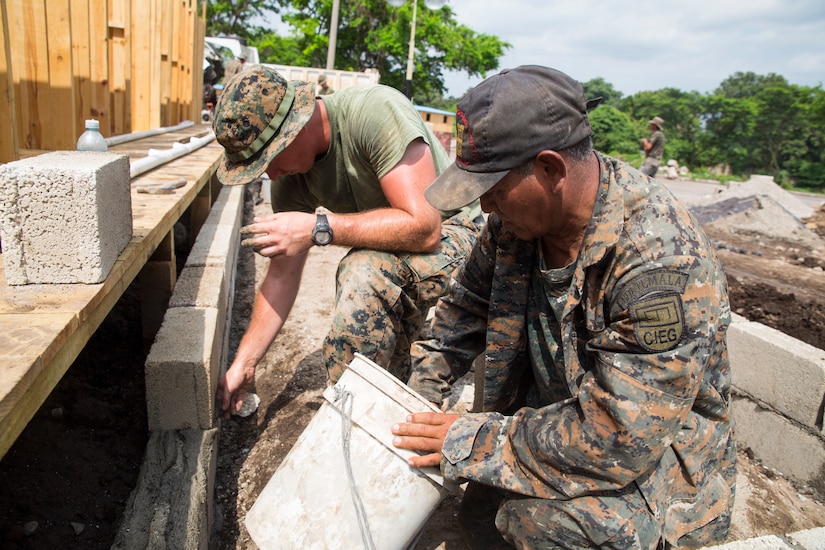By Army Staff Sgt. Vito T. Bryant, Defense Media Activity
WASHINGTON -- U.S. Southern Command’s humanitarian
assistance program conducts Defense Department-approved activities within its
area of responsibility in conjunction with partner nations to alleviate human
suffering, disease, hunger and privation, particularly in regions where those
needs may pose major challenges to the civilian populace.
By leveraging the combined capabilities of U.S. government
agencies, partner-nation military and civilian counterparts, and international
organizations, the program enables local governments to strengthen regional
security and stability.
Civil affairs officers play a vital role in Southcom’s
humanitarian assistance program.
“We are like the connective tissue between the DoD and
interagency partners that are responding to a major catastrophic event,” said
Army Col. J. Frank Melgarejo Jr., civil affairs planning detachment chief. “We
use our specialized skill sets in order to increase the effectiveness and
efficiency of the response.”
While disaster response is a critical part of the
humanitarian assistance mission, the hope is it will become less necessary.
“The rapid response effort is about a quarter of what we
do,” said Army Lt. Col. Steve Lewis, a Southcom civil affairs officer. “The
other 75 percent is helping our partner nations prepare.”
Close Coordination
Preparation efforts have included building emergency
operations centers and disaster relief warehouses, along with training
emergency responders in partner nations.
These projects are done in close coordination with the U.S. Agency for
International Development’s Office of Foreign Disaster Aid and the Defense
Security Cooperation Agency.
Between fiscal years 2012 and 2017, they have managed more
than 3,000 humanitarian assistance projects within their area of
responsibility, which encompasses 31 countries and 16 dependencies and areas of
special sovereignty.
“One can never underestimate the capability and capacity of
the partner nation,” Melgarejo said. “They might not have all of the equipment
that we have, but they have the will and the desire to make things better and
increase stability and security within their space.”

No comments:
Post a Comment